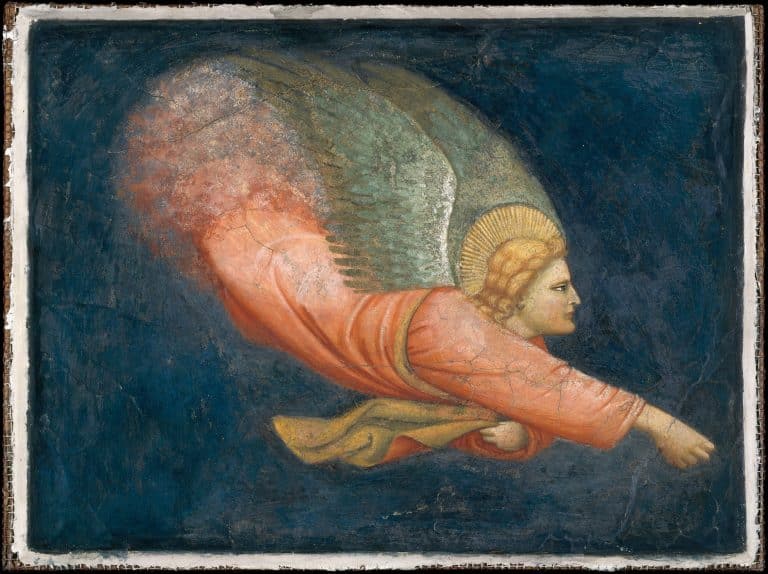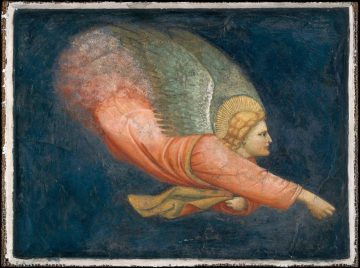When the ancient prophet Isaiah prophesied of our Savior, his words were beautiful, but also, as Isaiah tends to be, somewhat confusing. He described Christ’s birth this way:
For unto us a child is born, unto us a son is given: and the government shall be upon his shoulder: and his name shall be called Wonderful, Counselor, the mighty God, the everlasting Father, the Prince of Peace. (Isaiah 9:6)
And now for the confusing part:
Of the increase of his government and peace there shall be no end, upon the throne of David, and upon his kingdom, to order it, and to establish it with judgment and with justice from henceforth even forever. (Isaiah 9:7)
Many of those who knew this prophecy and looked forward to the coming of the Savior were naturally confused about how he would save them. Some expected a military leader who would save them from Roman rule and establish a new, earthly government. But instead of a warrior, God sent the Prince of Peace.
When Jesus Christ was born, a “multitude of the heavenly host [appeared] praising God, and saying, Glory to God in the highest, and on earth peace, good will toward men.” (Luke 2:10-14)
When the heavenly host sang of peace on earth, were they making a prophecy or expressing a hope?
Peace on earth was not achieved during Christ’s life. Christ told his disciples, “Peace I leave with you, my peace I give unto you,” shortly before he himself was violently killed. (John 14:27)
And today, we still don’t have peace on earth. More than ever before in recorded history, the people of the earth enjoy freedom from slavery, oppression, abuse and tyranny, but we have yet to eliminate these evils from the world. Domestic and international terrorists continue to attack, and as horrific as these random acts of violence are, even more people suffer from domestic violence at the hands of the loved ones they trust.
But some of Christ’s disciples did achieve personal peace during his lifetime. Christ taught Martha to rest from being “careful and troubled about many things,” so that she could sit in peace at Jesus’ feet and hear his word. (Luke 10:39-41) This peace became a part of her. When her brother Lazarus died, even before the miracle that brought him back to life, her testimony remained strong. She told Jesus, “But I know, that even now, whatsoever thou wilt ask of God, God will give it thee. …I know that [my brother] shall rise again in the resurrection at the last day. …I believe that thou art the Christ, the Son of God, which should come into the world.” (John 11:20-27)
Perhaps this inner peace is what the Savior was referring to when he qualified his promise “Peace I leave with you, my peace I give unto you” by adding “not as the world giveth, give I unto you.”
On Christmas day of 1863, Henry Wadsworth Longfellow wrote the carol, I heard the Bells on Christmas Day. At that time, there was no peace, not in the country nor in his personal life. His wife had died in a tragic household accident just a couple years before and his teenage son had been wounded fighting in the Civil War. At the time, Longfellow did not know if his son would survive. He captured his grief with this verse:
And in despair I bowed my head;
“There is no peace on earth,” I said;
“For hate is strong,
And mocks the song
Of peace on earth, good-will to men!”
And yet, even in this tragic time, he finished the song with hope;
Then pealed the bells more loud and deep:
“God is not dead; nor doth he sleep!
The Wrong shall fail,
The Right prevail,
With peace on earth, good-will to men!” (Reference A)
 While teaching at a Chinese university, an American named Marti Holloman hosted a cultural exchange in which Chinese students experienced American Christmas caroling. Most of the Chinese participants struggled with the unfamiliar songs, but one man sang exuberantly from memory. He had been converted to Christianity by Protestant missionaries forty years earlier. During the Communist revolution, his father died, his family lost their home and their money, and they lost the right to practice their Christian faith. He told his hosts that this was the first Christmas he’d had in thirty-six years. And yet, the joyful message of the gospel had lived in his heart all that time and given him peace. (Okazaki, Chieko N. (2010-10-29). Stars: Reflections on Christmas Kindle Locations 136-143). Deseret Book Company. Kindle Edition.)
While teaching at a Chinese university, an American named Marti Holloman hosted a cultural exchange in which Chinese students experienced American Christmas caroling. Most of the Chinese participants struggled with the unfamiliar songs, but one man sang exuberantly from memory. He had been converted to Christianity by Protestant missionaries forty years earlier. During the Communist revolution, his father died, his family lost their home and their money, and they lost the right to practice their Christian faith. He told his hosts that this was the first Christmas he’d had in thirty-six years. And yet, the joyful message of the gospel had lived in his heart all that time and given him peace. (Okazaki, Chieko N. (2010-10-29). Stars: Reflections on Christmas Kindle Locations 136-143). Deseret Book Company. Kindle Edition.)
While Jesus Christ was not a warrior, he did not live what most would consider to be a peaceful life. Isaiah described him as “despised and rejected of men; a man of sorrows, and acquainted with grief.” (Isaiah: 53:3) and Jesus himself said, “Think not that I am come to send peace on earth: I came not to send peace, but a sword.” And then he described the turmoil that would afflict even close family members as they engaged in the struggle between right and wrong. (Matthew 10:34-36)
One of my least favorite Christmas stories is the Little Match Girl by Hans Christian Anderson. It’s a horrible story and I apologize for bringing it to your recollection right now. The little match girl is an abused and neglected child who sees people enjoying the holidays through their windows, while she suffers outside in the cold. Unlike most Christmas stories, this one does not have a happy ending and I always have to comfort myself that it’s only fiction. But sadly, even today, for many, the fictional story of the little match girl much too closely mirrors their reality. (Reference B)
We have a similar story in the Book of Mormon. In the Zoramite nation, a group of wealthy people attended church weekly, to celebrate their own holiness, while forcing those in poverty to stay outside. (Alma 31-32)
The Lord asks more of us than simply closing our doors and windows to revel in our own personal peace while others suffer all around us. During the Sermon on the Mount, Christ taught, “Blessed are the peacemakers” (Matthew 5:9) and the Lord told early Latter-day Saints to “lift up an ensign of peace, and make a proclamation of peace unto the ends of the earth.” (D&C 105:39) Perhaps when the heavenly host said, “On earth peace, good will toward men,” they were issuing a challenge from the heavens to us. The Prince of Peace has called us to be the peacemakers.
Lucy Stone was a woman who cared more about peace on earth than about having a peaceful life for herself. In her own words, she had chosen a life of “constant conflict” working to address “the horrid wrongs of society.” She began traveling the nation to advocate against slavery and in favor of women’s rights in the 1840s. At the time, for a woman to become a public speaker was both scandalous and dangerous. Her speaking venues were attacked by mobs on several occasions. Her church leaders, who believed women should be silent, excommunicated her for becoming a public speaker.
 When Henry Blackwell first began trying to court her in 1853, Lucy resisted marriage because she did not want to risk becoming distracted from abolition and women’s rights. She told Henry that she was “willing and happy” to forego personal harmony because “millions of slaves [are] sighing for freedom; the great soul of womanhood [is] crushed and degraded; outcast children [have] drunken parents, [and they] should not be left to suffer on.”
When Henry Blackwell first began trying to court her in 1853, Lucy resisted marriage because she did not want to risk becoming distracted from abolition and women’s rights. She told Henry that she was “willing and happy” to forego personal harmony because “millions of slaves [are] sighing for freedom; the great soul of womanhood [is] crushed and degraded; outcast children [have] drunken parents, [and they] should not be left to suffer on.”
But Henry countered: “I don’t think all work and no play is the best mode of getting even the most work out of life. Above all, I do not believe that we were created only for results exterior to ourselves. I think sufficiently well of myself and of all human beings to believe that we were created as positive ends as well as means. We have a right to be happy.” (Wheeler, L. (1981). Loving Warriors. Selected Letters of Lucy Stone and Henry B. Blackwell, 1853-1893. Dial Press: NY.)
Eventually, Lucy Stone married Henry Blackwell, and at times, particularly when her children were born, (a daughter that she raised and a son that was stillborn) family life did slow down her work. But she remained committed to the cause and now she had Henry Blackwell working with her. Stone went on to work for the passage of the Fifteenth Amendment, giving Black men the right to vote, and became the founder of the American Woman Suffrage Association and the Woman’s Journal. Together with her husband Henry Blackwell and later her daughter, Alice Stone Blackwell, she continued to fight for many of the civil rights that we take for granted in America today.
As James taught, “Peacemakers who sow in peace, reap a harvest of righteousness.” (James 3:18. New International Version)
Not all of us will have the opportunity to bring about the sweeping kinds of reforms sought by Lucy Stone, but when we do feel prompted to sacrifice some of our personal peace and comfort for the sake of God’s work, we can take comfort in our Savior’s words:
Peace I leave with you, my peace I give unto you: not as the world giveth, give I unto you. Let not your heart be troubled, neither let it be afraid. (John 14:27)
In his last address to the church, President Howard W. Hunter shared a list of ways all of us can spread the peace of the Christmas season:
This Christmas, mend a quarrel. Seek out a forgotten friend. Dismiss suspicion and replace it with trust. Write a letter. Give a soft answer. Encourage youth. Manifest your loyalty in word and deed. Keep a promise. Forgo a grudge. Forgive an enemy. Apologize. Try to understand. Examine your demands on others. Think first of someone else. Be kind. Be gentle. Laugh a little more. Express your gratitude. Welcome a stranger. Gladden the heart of a child. Take pleasure in the beauty and wonder of the earth. Speak your love and then speak it again. (Reference C)
In the words of another Christmas carol, “Let there be peace on earth, and let it begin with me.” (Reference D)
(This article was originally delivered by the author as an LDS Sacrament Meeting talk on December 20, 2015.)






6 Responses
Beautifully articulated April!
My heart *is* troubled and afraid this week, but it feels like I’ve had many such weeks recently, and that sentiment seems pretty widely shared. So I appreciate your thoughts on both achieving inner peace, and also sacrificing some of that peace for the sake of God’s work. It’s a tension that demands quite a lot from a person.
Last year, when I gave this talk, I was feeling that way…and a year later, I feel even more so. It is good for me to re-reflect on this now.
This is wonderful, thank you!
It’s funny, but I *love * the little match girl and have since I was a child. I watch versions of it religiously at Christmas and love reading the original.
To each her own! I’m glad I didn’t traumatize all our readers by bringing up the Little Match Girl.
[…] Primary children’s program, and used my own contemporary voice the time I was asked to give a Christmas talk, for a group program in the chapel with narrators I felt more comfortable pulling directly from […]